Election launches and electoral pacts – UK Green news round up week 45
Greens join election pact with Lib Dems and Plaid Cymru
With just over a month until the UK goes to the polls in the General Election, the Green Party of England and Wales this week announced an election pact with the Liberal Democrats and Plaid Cymru. The pact is under the banner of “Unite to Remain”, which is seeking to maximise the number of pro-Remain MPs in the next parliament.
Under the terms of the agreement, 60 seats will have only one candidate from the three parties. In nine English constituencies, the Liberal Democrats are standing aside to give the Greens a free run. And in one Welsh constituency, both the Liberal Democrats and Plaid Cymru are standing aside.
The ten constituencies in which the Greens will be the sole “Unite to Remain” candidate are:
- Isle of Wight
- Bristol West
- Brighton Pavillion
- Bury St Edmonds
- Vale of Glamorgan
- Forest of Dean
- Dulwich and West Norwood
- Cannock Chase
- Stroud
- Exeter
Speaking on the agreement, Green Party of England and Wales co-leader Jonathan Bartley said:
This is about recognising how damaging Brexit would be – for people and for the environment – and ensuring there is as much representation of Remain parties in the next Parliament as possible.
Our country is at a crossroads and this election must be the point at which we start to move in a better direction. Everyone knows the Greens are the least tribal of any party and we are always willing to work with others for what’s in the best interests of the country.
However, the move has not been without controversy. It has attracted substantial criticism from Labour supporters who have questioned the merits of entering into an electoral pact with the Liberal Democrats given their record in the coalition government. Many have also criticised the fact that the pact includes some Labour-Tory marginals, where a strong “Unite to Remain” vote share could led a Tory in at Labour’s expense. Prominent among the seats facing this allegation is Stroud.
But Green member of the House of Lords Jenny Jones hit out at Labour for failing to get on board with Unite to Remain. In an article for Left Foot Forward, Jones wrote:
This time though, we tried, and we are still open to trying again – but sadly we are not getting a positive response from Labour. Greens got absolutely nothing back for our sacrifice in 2017. No recognition from Labour. No promise of fair vote (PR) elections.
Jones also described Labour as “shameless” for accepting Greens standing aside for Labour in seats such as Calder Valley but failing to reciprocate such arrangements.
Despite this, the move has proved highly controversial among the Green Party membership. Some members – including former members of both the Green Party and Young Greens executives – have threatened to resigned their membership. And in some instances, high profile members have indeed left the party over the agreement.
Among those turning their backs on the Greens are a member of the party’s conferences committee, and the Green Party’s prospective parliamentary candidate in Filton and Bradley Stoke. More significantly still, Green MEP Magid Magid retweeted a criticism of the pact which described the Liberal Democrats’ climate policies as “a death sentence for many in the Global South”.
Greens pledge £100bn per year for climate action in election campaign launch
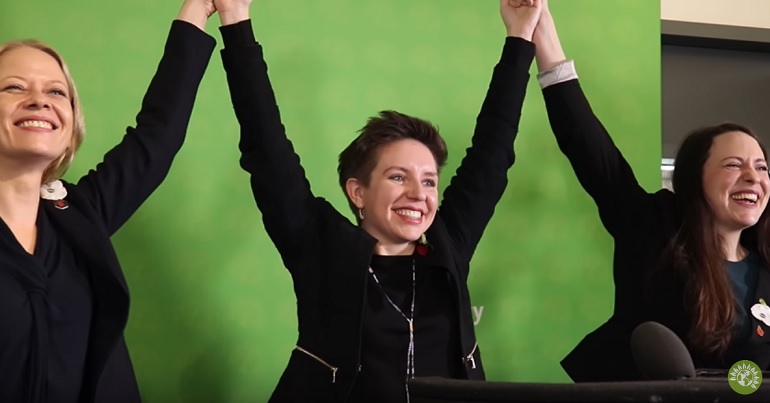
The Green Party of England and Wales formally launched its election campaign this week. Action on climate change is to be central to the party’s platform, with co-leader Sian Berry describing the General election as “the climate election”. At the launch event in Bristol, the Greens committed to spend £100bn per year on climate action.
Speaking at the launch, Berry said that despite the backdrop of climate change, Greens “are the future”:
Let’s be honest about the situation we’re in. We know these are dark times. It’s easy to fear the future.
The threat of Brexit hangs over our heads, the climate emergency rages from the Amazon to the Arctic, and our fragile democracy is under attack.
But despite all this, Greens don’t fear the future. We are the future. We stand at the threshold of what could be the most exciting and prosperous period of our country’s history.
The launch placed Bristol West parliamentary candidate Carla Denyer at its centre. At the launch, Denyer said:
It’s so clear to me that there has never been more appetite in this country for real climate action.
Anti Brexit pact agreed in North of Ireland

It isn’t just in England and Wales that Greens have agreed an electoral alliance. The Green Party in Northern Ireland has also entered into an anti-Brexit pact. There will be no Green Party candidate in any of the Belfast constituencies, as part of a cross-party effort to elect Remain MPs. The Greens are standing down to give Sinn Fein and SDLP candidates a free run in the seats.
Speaking on the decision, Green Party in Northern Ireland leader Clare Bailey said:
This election is all about returning as many pro-Remain MPs as possible.
These are extraordinary times and require an extraordinary response.
The Green Party NI achieved our best ever vote across the city of Belfast in the local government election earlier this year.
However, I’m prepared to put the need to have pro-Remain MPs returned ahead of party interest.
The realities of the first-past-the-post system and the threat posed to our way of life by Brexit means that we must do everything possible to maximise the pro-Remain vote .
People want us to act to maximise the pro-Remain voice and that’s what we’re doing right across Belfast in our decision not to stand candidates.
Greens to be left out of leaders’ debates
Details of one of the most disputed aspects of modern General Election campaigns were released this week. The UK’s major broadcasters announced their plans for the leaders’ debates. A total of 13 debates have been announced starting on November 19. But nearly half of them won’t feature Green Party representatives.
Seven UK-wide debates have been agreed thus far. And the Greens have been invited to participate in half of them – all of which also feature leaders of Labour, the Tories, the SNP, Liberal Democrats, Plaid Cymru, and the Brexit Party:
- A BBC debate on November 29
- A special edition of Question Time for under 30s on December 9
- An ITV debate on a date to be confirmed
However, there are four other agreed UK-wide debates which won’t include the Greens. These are:
- An ITV debate between Jeremy Corbyn and Boris Johnson on November 19
- A special edition of Question Time featuring Jeremy Corbyn, Boris Johnson, Jo Swinson and Nicola Sturgeon on November 22
- A Sky News debate featuring Jeremy Corbyn, Boris Johnson and Jo Swinson on November 28
- A BBC debate between Jeremy Corbyn and Boris Johnson
There are a further six debates covering Scotland, Wales and the North of Ireland. Greens have been invited to five of these:
- Two BBC Wales debates on November 26 and December 3
- A BBC Scotland debate on December 10
- An STV debate and ITV Cymru debate on dates to be confirmed
There will also be a debate on BBC Northern Ireland. It is not yet known which political parties will be invited to participate.
Scottish Greens launch election campaign
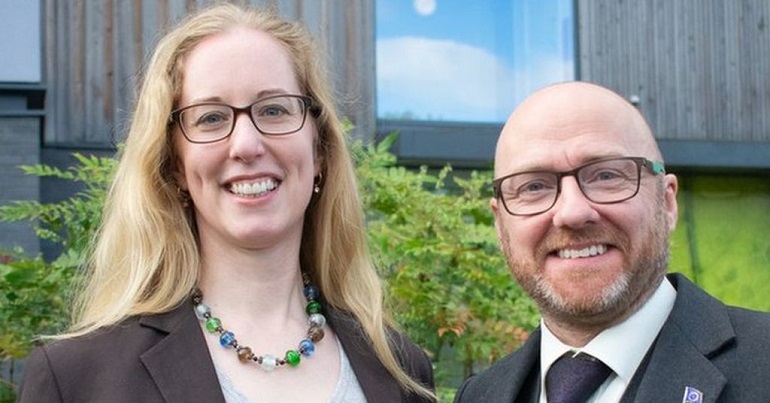
As with its sister party south of the border, the Scottish Green Party this week launched its election campaign. And the Scottish Greens have similarly put climate front and centre.
Speaking ahead of the launch, party co-leader Patrick Harvie argued that the clearest way to demand climate action was to vote Green:
There has never been a more important general election. MPs elected next month will preside over half the period we have left to address the climate emergency, yet all the establishment parties have yet to commit to the urgent action required.
The loudest and clearest way to demand climate action is to vote Scottish Greens on December 12.
And his fellow co-leader Lorna Slater said that the Greens would deliver a Green New Deal for Scotland:
A Scottish Green New Deal would be so much easier with the levers over fiscal, economic and monetary policy, air transport, electricity, energy efficiency, registration of land and to transition away from oil and gas, coal and nuclear energy.
The Scottish Green Party is standing in more than 20 constituencies in the General Election, and has eschewed forming alliances with other parties.
Green parliamentary candidates selected in final days before nominations close
With nominations for the General Election closing on November 14, the final flurry of Green Party candidates are being selected. This week saw more than a dozen Greens selected to fight the election. Amongst those announced this week were:
- Zoe Hatch – Beaconsfield. The Greens won 2.5% of the vote in Dominic Grieve’s constituency in 2017.
- Ellie Chowns – North Herefordshire. Chowns was elected as a Green MEP in May. North Herefordshire was one of just eight seats in which the Greens kept their deposit in 2017.
- Diana Toynbee – Hereford and South Herefordshire. The Greens won 2.4% of the vote here in 2017.
- James Abbott – Witham. The Greens won 3.7% of the vote in Priti Patel’s constituency in 2017.
- Peter Sims – Wycombe. Sims won 2.2% of the vote here in 2017. The seat is currently held by European Research Group chairman Steve Baker, and is now a Tory-Labour marginal.
- Kat Boettge – Broxtowe. Boettge came fourth in the 2016 Green Party Deputy Leadership election. Broxtowe is currently held by Change UK leader Anna Soubry, and will be a key target for Labour, the Tories and Change UK. The Greens won 1.2% of the vote in 2017.
- Louis Steven – Worcester. The Greens won 2.4% of the vote here in 2017.
- David Jones – Blackley and Broughton. The Greens won 1.1% of the vote here in 2017.
- Melanie Horrocks – Manchester Central. The Greens won 1.7% of the vote here in 2017.
- Eliza Tyrrel – Manchester Gorton. The Greens won 2.3% of the vote here in 2017.
- Lucy Bannister – Manchester Withington. The Greens won 1.6% of the vote here in 2017. But in 2015, the party picked up 8.1%.
- Rob Nunney – Wythenshaw and Sale East. The Greens won 1.3% of the vote here in 2017.
Dozens turn out to Young Greens action days
With the election campaign underway, the Young Greens of England and Wales are ramping up their efforts to elect more Green MPs. This weekend, Young Green activists have been out in force in Exeter, Sheffield and London.
In Exeter, Young Green candidate Joe Levy was supported by Young Greens across the South West:
Out campaigning with @YoungGreenParty to elect me as #Exeter‘s first @TheGreenParty MP! Lots of teams out supporting me today! #VoteGreen2019 pic.twitter.com/CZz355QBal
— Joe Levy (@JoeJLevy) November 9, 2019
Meanwhile, in Wandsworth, Greens of all ages came out to campaign for Glyn Goodwin as part of a London Young Greens action day:
Ready for our Action Day with @greenwandsworth pic.twitter.com/EIAwKUDPnk
— London Young Greens (@LondonYGs) November 10, 2019
And in Sheffield, Young Greens joined prominent Greens Magid Magid and Natalie Bennett across two days of campaigning to get Alison Teal elected in Sheffield Central:
Happy @MagicMagid finally made it to Sheffield to help with our campaign day with brilliant @YoungGreenParty He’s was delayed 4 hours because of flooding #ClimateCrisis @SheffieldGreens @TheGreenParty #WantGreenVoteGreen pic.twitter.com/5989Ae62ee
— Alison Teal 🌳 (@alisonclareteal) November 9, 2019
Loads of @YoungGreenParty & @SheffieldGreens supporters campaigning to elect @alisonclareteal in #Sheffield Central today. Greens received most of vote in last two elections here & can again to tackle #climateemergency, #inequality & call for a #peoplesvote #VoteGreen2019 pic.twitter.com/opdLTmJL5i
— Martin Phipps (@MartinPhipps13) November 10, 2019
The action weekends are part of an ambitious election campaign which has so far featured:
- Nearly 30 activists participating in an online organiser call.
- Dozens attending Young Greens phone banks, with hundreds of members being asked to campaign in key constituencies.
- Over 100 Young Greens taking part in online campaigning.
Next weekend, the Young Greens will be campaigning for two days on the Isle of Wight, and throughout the election campaign will be visiting constituencies including Bristol West and Lewes.
Catherine Rowett condemns Cambridge University fossil fuel ties
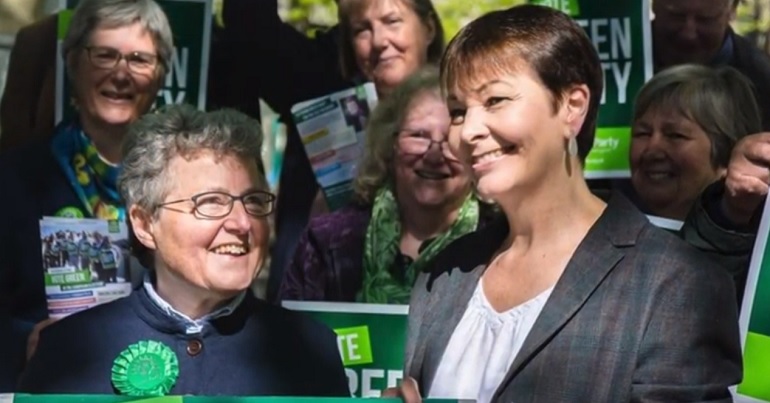
Cambridge University was this week once again embroiled in controversy over its ties to the fossil fuel industry. This time, it wasn’t related to its investments, but instead to money flowing from the industry directly into the university. Shell gave £6m to the university’s magnetic resonance research group, including funding to work on recovery of oil and hydrocarbons.
Among those criticising the university was Green MEP for the East of England Catherine Rowett. She said:
It is scandalous that Cambridge University is accepting dirty money from a company that is directly responsible for the climate crisis and with links to human rights abuses in many countries.
We are already extracting enough oil and gas to send temperatures well over safe levels, if it is burned, so I cannot understand why intelligent researchers would want to extract more. The fossil fuel dependence funded by Shell should have long ago been superseded and become a thing of the past.
Cambridge should ensure that it takes no funding from any fossil fuel industry and does no research for those industries, regardless of the funding stream. All our research resource should be redirected to projects that will benefit, not harm, the world we live in.
This article was edited at November 10 to correct inaccuracies in the quote attributed to Sian Berry at the Green Party’s campaign launch. The primary change was that “we welcome the future” was edited to read “we are the future”.


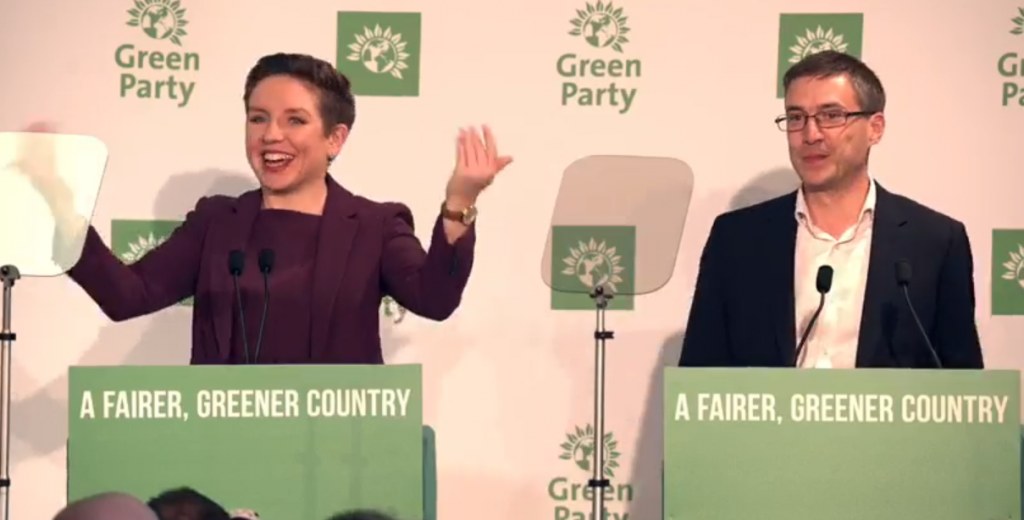
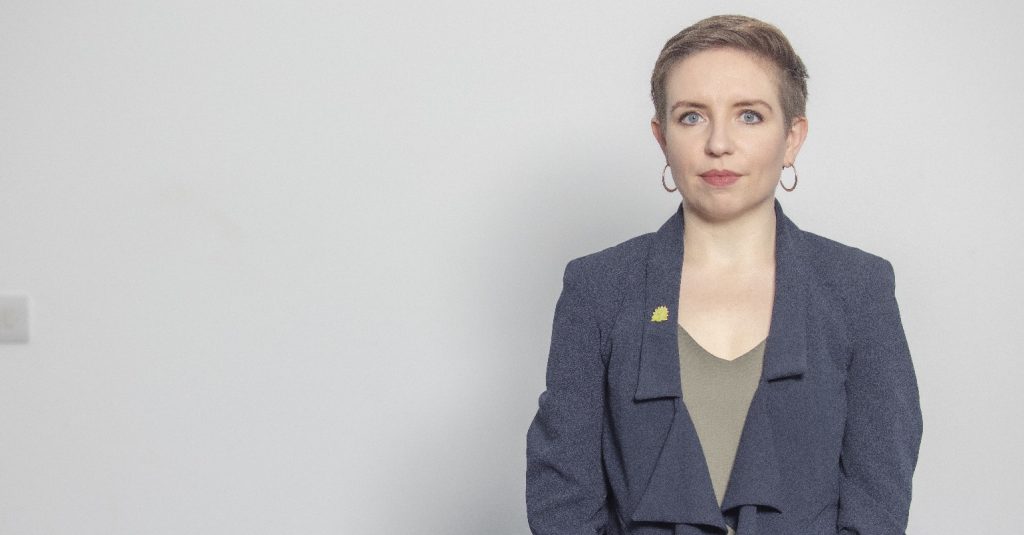
Frankly I am surprised to see Jenny Jones criticising Labour for failing to join Unite for Remain. She argued to leave in 2016 shamelessly, opposing GP policy, and only converted when she realised she had made a strategic and tactical error.
If we truly believe Green is the future, we must shun all electoral pacts, and misguided tactical voting attempts. It has never woekd well before, and – even if some now say the stakes are higher – it will not work now. Think Green, vote Green is my only suggestion.